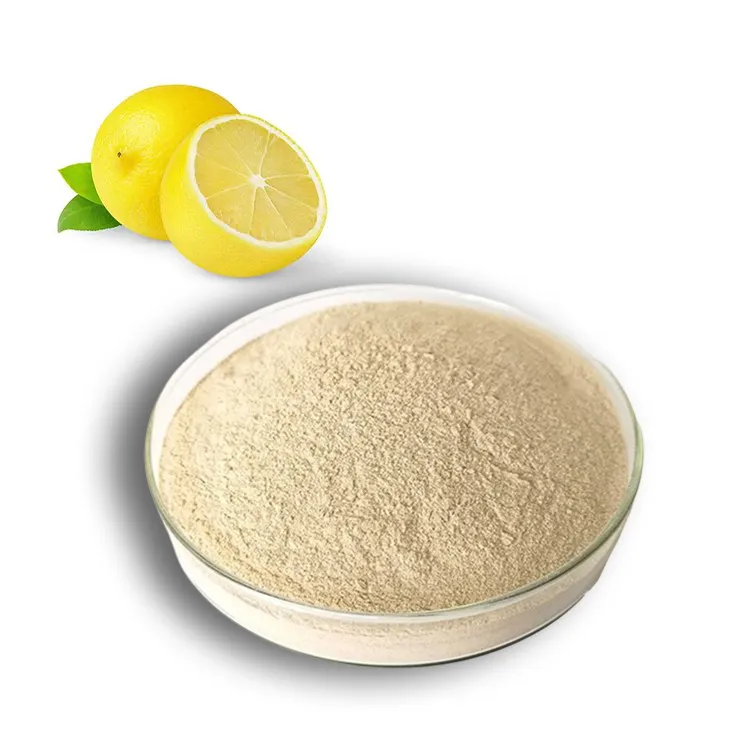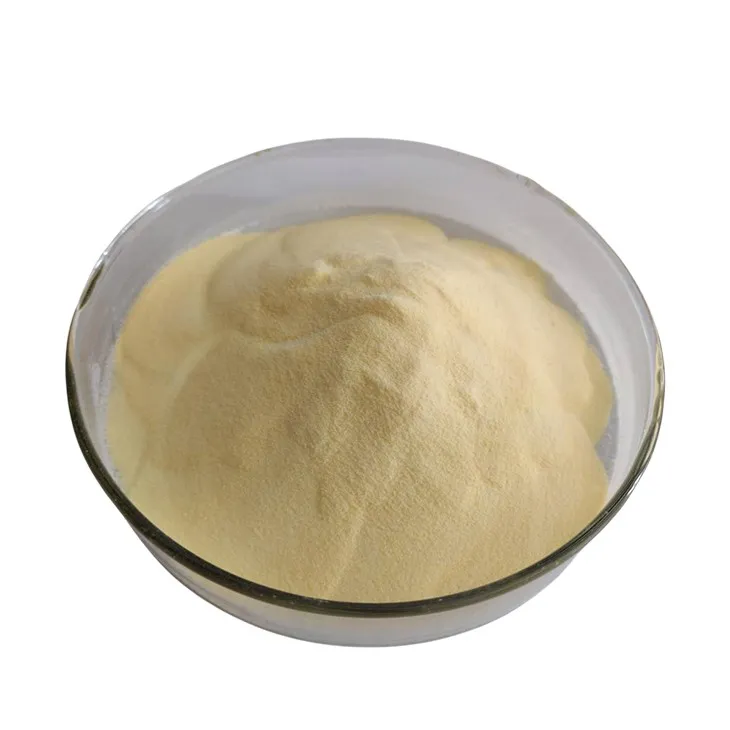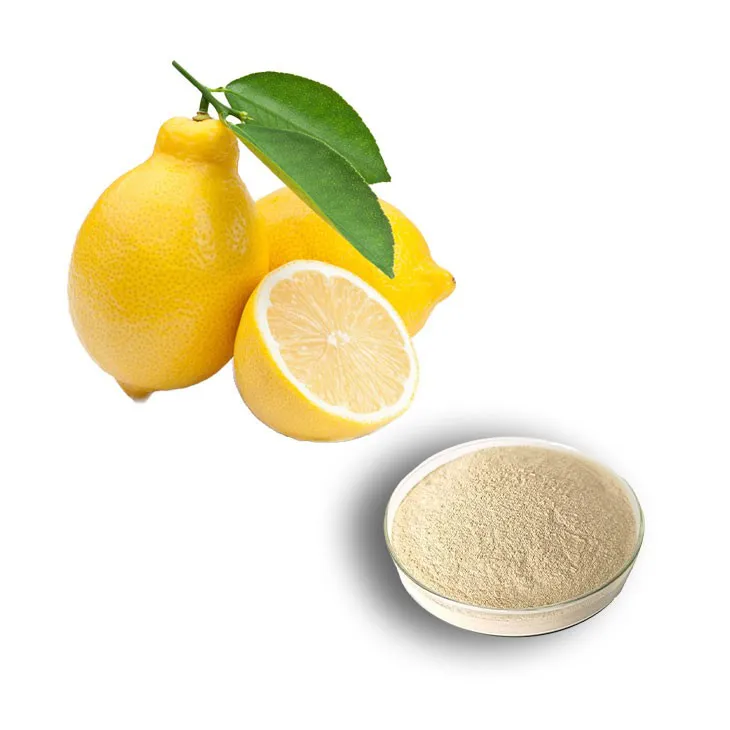- 0086-571-85302990
- sales@greenskybio.com
Lemon Extract: Should You Use It for Skin Care?
2024-11-13

Introduction
In the world of skincare, new ingredients are constantly emerging, and Lemon Extract is one that has been making waves in recent years. With its reputation for having various beneficial properties, it has caught the attention of many beauty enthusiasts. But before you jump on the Lemon Extract bandwagon for your skincare routine, it's important to understand what it really offers and what potential risks it may pose.

The Composition of Lemon Extract
Lemon extract is derived from lemons, which are rich in several substances that can potentially impact the skin. One of the key components is citric acid. Citric acid is a type of alpha - hydroxy acid (AHA). AHAs are known for their exfoliating properties. It helps to break down the bonds between dead skin cells, allowing them to be sloughed off more easily. This can lead to a smoother, more radiant complexion.
Lemons also contain vitamin C. Vitamin C is a powerful antioxidant. In skincare, it is highly regarded for its ability to brighten the skin. It works by inhibiting the production of melanin, the pigment responsible for dark spots and uneven skin tone. Additionally, vitamin C can help boost collagen production. Collagen is a protein that gives the skin its firmness and elasticity. As we age, collagen production naturally declines, and using products with vitamin C can potentially slow down this process.
Another component found in lemon extract is limonene. Limonene is a terpene, which gives lemons their characteristic citrus scent. It also has some antibacterial and antifungal properties, which could potentially be beneficial for the skin, especially in the fight against acne - causing bacteria.

Potential Benefits of Lemon Extract for Skin Care
Brightening the Skin
As mentioned earlier, the vitamin C in lemon extract can play a significant role in brightening the skin. Dark spots, hyperpigmentation, and dullness are common skin concerns. The antioxidant properties of vitamin C help to neutralize free radicals that can damage the skin and lead to these issues. By reducing melanin production, it can fade existing dark spots and prevent new ones from forming. Regular use of products containing lemon extract may result in a more even - toned, glowing complexion.
Fighting Acne
The antibacterial properties of lemon extract, mainly due to limonene, can be effective in fighting acne. Acne is often caused by the overgrowth of the bacteria Propionibacterium acnes on the skin. The substances in lemon extract can potentially inhibit the growth of this bacteria, reducing the occurrence of breakouts. Additionally, the exfoliating effect of citric acid helps to unclog pores. When pores are clogged with dead skin cells, sebum (oil) gets trapped, creating an ideal environment for bacteria to thrive. By keeping the pores clear, lemon extract can help prevent acne formation.
Exfoliation
Citric acid in lemon extract acts as a gentle exfoliant. Unlike some harsher chemical exfoliants, it is generally considered milder on the skin. Regular exfoliation is important for maintaining healthy - looking skin. It removes the layer of dead skin cells that can make the skin look dull and rough. By promoting cell turnover, lemon extract can reveal fresher, smoother skin underneath. This can also enhance the absorption of other skincare products. When the top layer of dead skin is removed, it allows serums, moisturizers, and other products to penetrate more deeply into the skin, maximizing their effectiveness.

Possible Risks of Lemon Extract for Skin Care
Skin Irritation
Despite its potential benefits, lemon extract can also cause skin irritation. The citric acid, which is exfoliating, can be too harsh for some skin types, especially those with sensitive skin. Using products with high concentrations of lemon extract may lead to redness, itching, or a stinging sensation. It's important to note that the skin on our face is generally more delicate than the skin on other parts of the body, so it is more susceptible to irritation. People with rosacea or eczema should be particularly cautious when considering using lemon - based skincare products.
Increased Sun Sensitivity
The exfoliating and skin - brightening effects of lemon extract can also make the skin more sensitive to the sun. When the outer layer of dead skin cells is removed or when the production of melanin is inhibited, the skin has less natural protection against UV rays. This means that if you use lemon extract - based skincare products, you need to be extra vigilant about sun protection. Failure to do so can increase the risk of sunburn, premature aging, and skin cancer. It is recommended to use a broad - spectrum sunscreen with a high SPF every day, even on cloudy days, if you are using lemon extract in your skincare routine.

How to Incorporate Lemon Extract into Your Skincare Routine
If you decide to try lemon extract in your skincare routine, it's important to do so carefully. Here are some guidelines:
- Patch Test: Before applying any product containing lemon extract to your face, perform a patch test. Apply a small amount of the product to a small area of skin, such as the inside of your wrist or behind your ear. Wait for 24 - 48 hours to see if any irritation occurs. If there is no reaction, it may be safe to use on your face.
- Start Slowly: Begin by using products with a low concentration of lemon extract. This allows your skin to adjust gradually. For example, if you are using a lemon - based serum, start by using it once or twice a week and gradually increase the frequency as your skin tolerates it.
- Use in Combination with Sun Protection: Always use a sunscreen during the day when using lemon extract - based products. This will help protect your skin from the increased sun sensitivity. Look for a sunscreen with an SPF of at least 30 and reapply it every two hours if you are outdoors.
- Avoid Over - exfoliation: Since citric acid is an exfoliant, be careful not to over - exfoliate your skin. Over - exfoliation can disrupt the skin's natural barrier function and lead to dryness, irritation, and other skin problems. Limit your use of lemon extract - based exfoliating products to no more than two or three times a week, depending on your skin type.
Conclusion
Lemon extract has both potential benefits and risks when it comes to skincare. Its ability to brighten the skin, fight acne, and exfoliate can be appealing, but the risks of skin irritation and increased sun sensitivity cannot be ignored. If you have normal or oily skin and are willing to take the necessary precautions, such as patch testing and using sun protection, lemon extract may be a valuable addition to your skincare routine. However, if you have sensitive skin or are prone to skin allergies, it may be best to avoid it or consult a dermatologist before use. Ultimately, the decision of whether or not to use lemon extract in your skincare should be based on a careful consideration of your individual skin type and needs.
FAQ:
What are the potential benefits of lemon extract for skin?
Lemon extract is believed to have several potential benefits for the skin. One of the main benefits is its skin - brightening property. It contains natural acids, such as citric acid, which can help to exfoliate the skin gently. By removing dead skin cells on the surface, it can reveal a fresher, brighter complexion. Additionally, lemon extract may have antibacterial properties, which could be beneficial in fighting acne - causing bacteria. This may potentially help in reducing acne breakouts and keeping the skin clearer.
Can lemon extract cause skin irritation?
Yes, lemon extract can cause skin irritation. The acids present in lemon extract, like citric acid, can be quite strong. For people with sensitive skin, applying lemon extract directly to the skin can lead to redness, itching, or a burning sensation. Even for those with normal skin, if the lemon extract is not used properly, for example, if it is left on the skin for too long or used in a too - concentrated form, it can still cause irritation.
How should lemon extract be used in a skincare routine?
If you decide to use lemon extract in your skincare routine, it should be used with caution. It is often recommended to dilute it first. For example, you can mix a few drops of lemon extract with a carrier oil, like jojoba oil or almond oil, or with a mild moisturizer. When applying it to the skin, do a patch test first on a small area of skin, such as the inside of your forearm, and wait for 24 hours to check for any adverse reactions. If there is no irritation, you can then apply it sparingly to the face or other areas of the skin, but avoid the eye area.
Is lemon extract suitable for all skin types?
No, lemon extract is not suitable for all skin types. As mentioned before, people with sensitive skin are more likely to experience irritation from lemon extract. Also, those with very dry skin may find that the acidic nature of lemon extract further dries out their skin, as it can disrupt the skin's natural moisture barrier. However, for people with normal or oily skin, when used properly, lemon extract may offer some benefits such as brightening and acne - fighting.
Can lemon extract replace my regular acne treatment?
While lemon extract may have some antibacterial properties that can help in fighting acne - causing bacteria, it is not likely to replace a regular acne treatment completely. Acne is a complex skin condition that may require a combination of treatments, such as topical medications prescribed by a dermatologist, proper cleansing, and a healthy diet. Lemon extract can be used as a complementary treatment, but it should not be relied upon solely to treat severe acne.
Related literature
- The Effects of Citrus Extracts on Skin Health"
- "Lemon - Derived Compounds in Skincare: A Comprehensive Review"
- "Benefits and Risks of Natural Extracts in Dermatology: Focus on Lemon"
- ▶ Hesperidin
- ▶ citrus bioflavonoids
- ▶ plant extract
- ▶ lycopene
- ▶ Diosmin
- ▶ Grape seed extract
- ▶ Sea buckthorn Juice Powder
- ▶ Beetroot powder
- ▶ Hops Extract
- ▶ Artichoke Extract
- ▶ Reishi mushroom extract
- ▶ Astaxanthin
- ▶ Green Tea Extract
- ▶ Curcumin Extract
- ▶ Horse Chestnut Extract
- ▶ Other Problems
- ▶ Boswellia Serrata Extract
- ▶ Resveratrol Extract
- ▶ Marigold Extract
- ▶ Grape Leaf Extract
- ▶ blog3
- ▶ blog4
- ▶ blog5
-
Organic Tongkat Ali extract powder factory.
2024-11-13
-
How to make powder with ashwagandha extract.
2024-11-13
-
Rosehip extract manufacturers from China.
2024-11-13
-
The best cat's claw extract in nature.
2024-11-13
-
Chinese Dandelion Leaf Extract Suppliers.
2024-11-13
-
Shikone Extract
2024-11-13
-
Artichoke Leaf Extract
2024-11-13
-
Grape Seed Extract
2024-11-13
-
Hedyotis Diffusa Extract
2024-11-13
-
Kelp Extract Powder
2024-11-13
-
Yam Extract
2024-11-13
-
Dandelion Root Extract
2024-11-13
-
Angelica sinensis extract
2024-11-13
-
Curcuma Longa Extract/Turmeric extract
2024-11-13
-
White Willow Bark Extract
2024-11-13





















